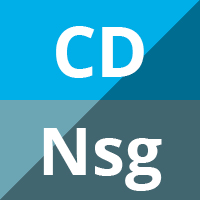
Vasoactive drugs for acute stroke
Abstract Background It is unclear whether blood pressure (BP) should be altered actively during the acute phase of stroke. Objectives To assess the effect of lowering or elevating BP in people with acute stroke, and the effect of different vasoactive drugs on BP in acute stroke. Search methods We searched the Cochrane Stroke Group Trials […]

Interventions for sensory impairment in the upper limb after stroke
Abstract Background Sensory impairments significantly limit the ability to use the upper limb after stroke. However, little is known about the effects of interventions used to address such impairments. Objectives To determine the effects of interventions that target upper limb sensory impairment after stroke. Search methods We searched the Cochrane Stroke Group Trials Register (last […]

Stroke liaison workers for stroke patients and carers: an individual patient data meta-analysis
Abstract Background Many patients experience depression, social isolation and anxiety post stroke. These are associated with a poorer outcome. Ameliorating these problems may improve patient wellbeing. Objectives To evaluate the impact of a healthcare worker or volunteer whose multi-dimensional roles have been grouped under the title ‘stroke liaison worker’. Search methods We searched the Cochrane […]

Simultaneous bilateral training for improving arm function after stroke
Abstract Background Simultaneous bilateral training, the completion of identical activities with both arms simultaneously, is one intervention to improve arm function and reduce impairment. Objectives To determine the effects of simultaneous bilateral training for improving arm function after stroke. Search methods We searched the Cochrane Stroke Trials Register (last searched August 2009) and 10 electronic […]

Extracranial-intracranial arterial bypass surgery for occlusive carotid artery disease
Abstract Background The EC/IC Bypass Study Group found no benefit of extracranial to intracranial (EC/IC) bypass surgery over medical therapy in patients with symptomatic carotid artery occlusion (sCAO). However, the study was criticised for many reasons and the real effect of this treatment is still not known conclusively. Objectives To determine whether bypass surgery plus […]

Tirilazad for aneurysmal subarachnoid haemorrhage
Abstract Background Delayed cerebral ischaemia is a significant contributor to poor outcome (death or disability) in patients with aneurysmal subarachnoid haemorrhage (SAH). Tirilazad is considered to have neuroprotective properties in animal models of acute cerebral ischaemia. Objectives To assess the efficacy and safety of tirilazad in patients with aneurysmal SAH. Search methods We searched the […]

Carotid endarterectomy for carotid stenosis in patients selected for coronary artery bypass graft surgery
Abstract Background Carotid stenosis and coronary artery disease can occur simultaneously. In patients with coronary artery disease who are scheduled for coronary artery bypass graft (CABG) surgery, but who also have carotid artery stenosis, there is controversy about the role of carotid surgery. It is not known whether any benefit from prophylactic carotid endarterectomy (by […]

Thienopyridine derivatives versus aspirin for preventing stroke and other serious vascular events in high vascular risk patients
Abstract Background Aspirin is the most widely studied and prescribed antiplatelet agent for preventing serious vascular events, reducing the odds of such events among high vascular risk patients by about a quarter. Thienopyridine derivatives inhibit platelet activation by a different mechanism and so may be more effective. Objectives To determine the effectiveness and safety of […]

Patch angioplasty versus primary closure for carotid endarterectomy
Abstract Background Carotid patch angioplasty (with either a venous or a synthetic patch) may reduce the risk of carotid artery restenosis and subsequent ischaemic stroke. This is an update of a Cochrane Review originally published in 1995 and previously updated in 2004. Objectives To assess the safety and efficacy of routine or selective carotid patch […]

Acanthopanax for acute ischaemic stroke
Abstract Background Acute ischaemic stroke is a common cause of death and disability. A number of studies published in China have shown that acanthopanax is beneficial for acute ischaemic stroke. Objectives To assess the efficacy and safety of acanthopanax in patients with acute ischaemic stroke. Search methods We searched the Cochrane Stroke Group Trials Register […]

